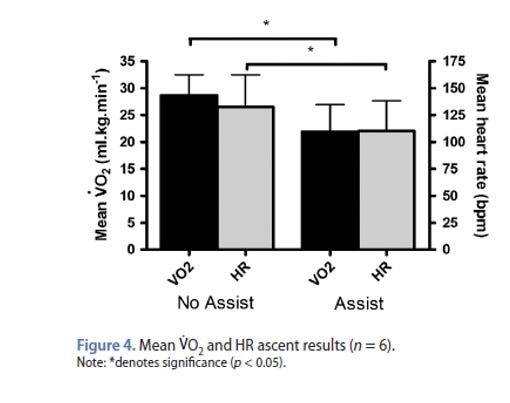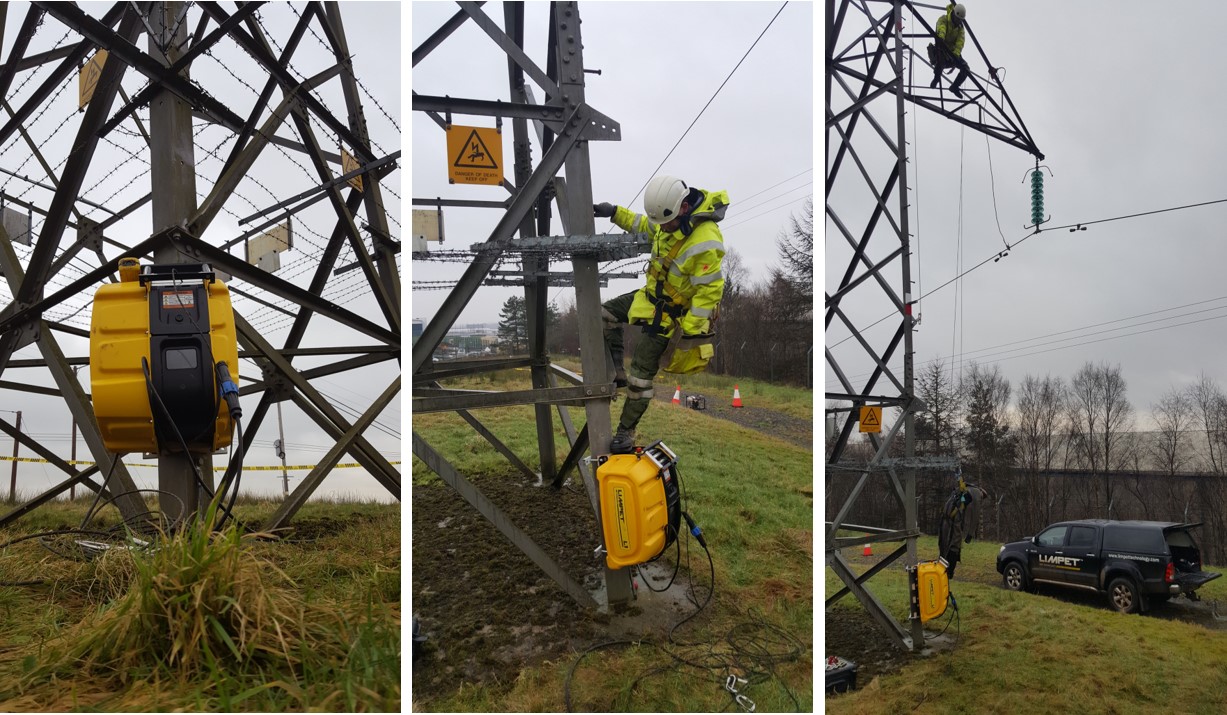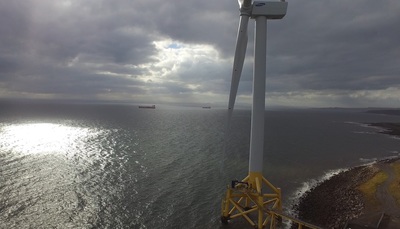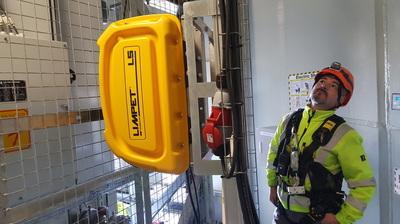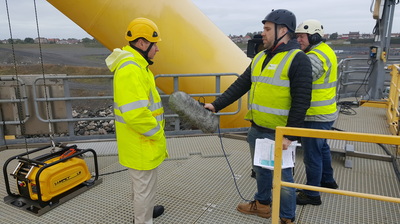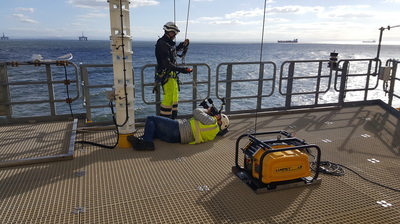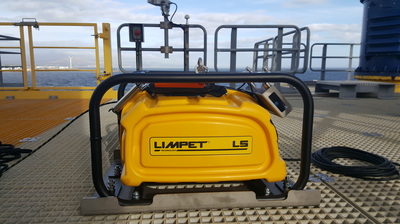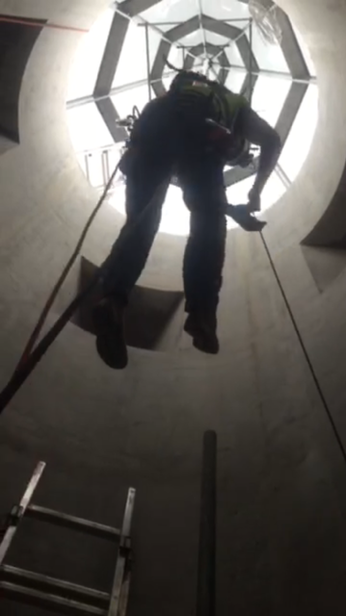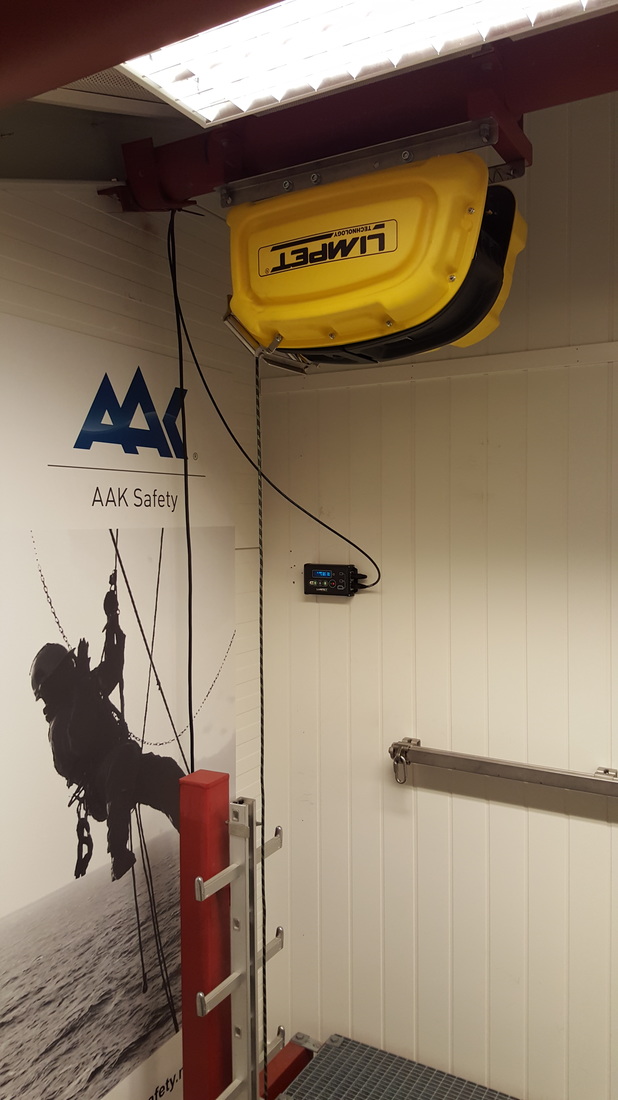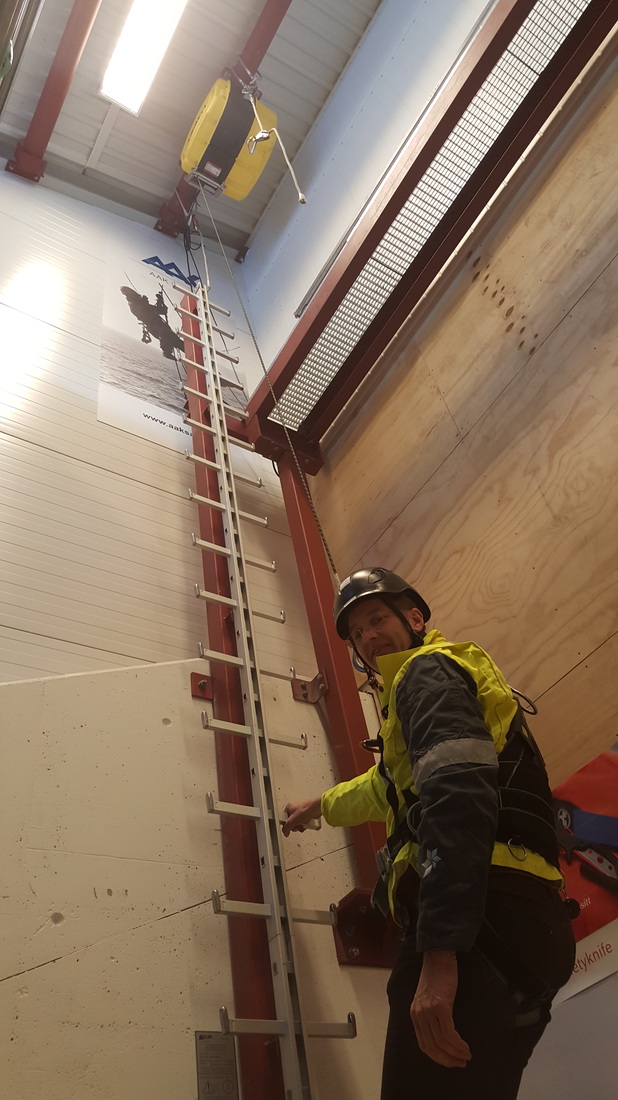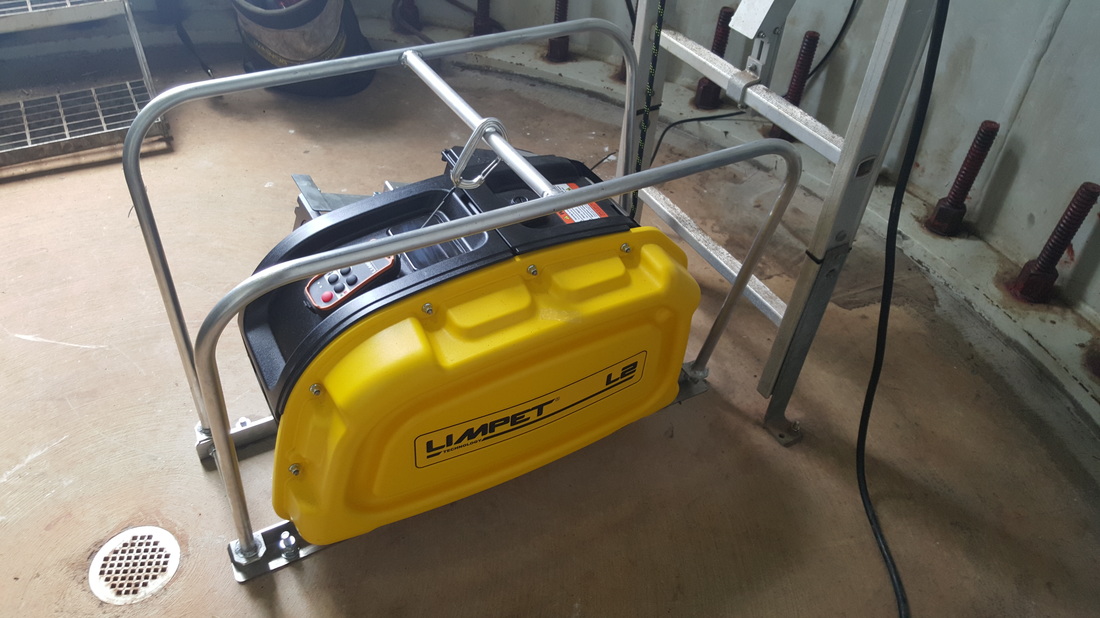As everyone who regularly climbs long ladders knows, ladder climbing is really hard work. Ever since Limpet Technology was founded, we've been banging on about how much easier climbing long vertical ladders becomes if you use a climb assist (particularly one that reliably and comfortably lifts 90% of your weight....like a Limpet for example). Our point of view is that, if you want your technicians to get up and down turbines in a way that is fast, easy and safe and which leaves them in good shape to do whatever technical work it is they need to do, then having a climb assist (and a Limpet in particular) is the way to go. We think this is true in older turbines where there is no lift and we think it should be true in newer turbines, where we hear more and more horror stories about the high maintenance costs and low reliability of service elevators.
Anyway, we recently noted that Robert Gordon's University has been putting some numbers that reinforce the exertion side of that equation. In its October 2016 paper titled "The physiological effect of a ‘climb assist’ device on vertical ladder climbing", it states that "heart rate (HR), O2 and rate of perceived exertion (RPE) all decreased significantly (p < 0.05) with climb assist with O2 decreasing by 22.5%, HR by 14.8% and RPE decreasing by a mean of 2.3 units on the 10-point Borg scale. When descending the ladder O2 decreased by a mean of 42% compared to that ascending. At the minimal acceptable climbing speed climb assist decreases the physiological strain on climbers, as demonstrated by reduced O2, HR and perceived exertion.
Anyway, we recently noted that Robert Gordon's University has been putting some numbers that reinforce the exertion side of that equation. In its October 2016 paper titled "The physiological effect of a ‘climb assist’ device on vertical ladder climbing", it states that "heart rate (HR), O2 and rate of perceived exertion (RPE) all decreased significantly (p < 0.05) with climb assist with O2 decreasing by 22.5%, HR by 14.8% and RPE decreasing by a mean of 2.3 units on the 10-point Borg scale. When descending the ladder O2 decreased by a mean of 42% compared to that ascending. At the minimal acceptable climbing speed climb assist decreases the physiological strain on climbers, as demonstrated by reduced O2, HR and perceived exertion.
RGU will be looking in more detail at how concentration/ productivity may be affected by the exertion associated with ladder climbing in a set of upcoming studies and we'll post results here as they come in.

